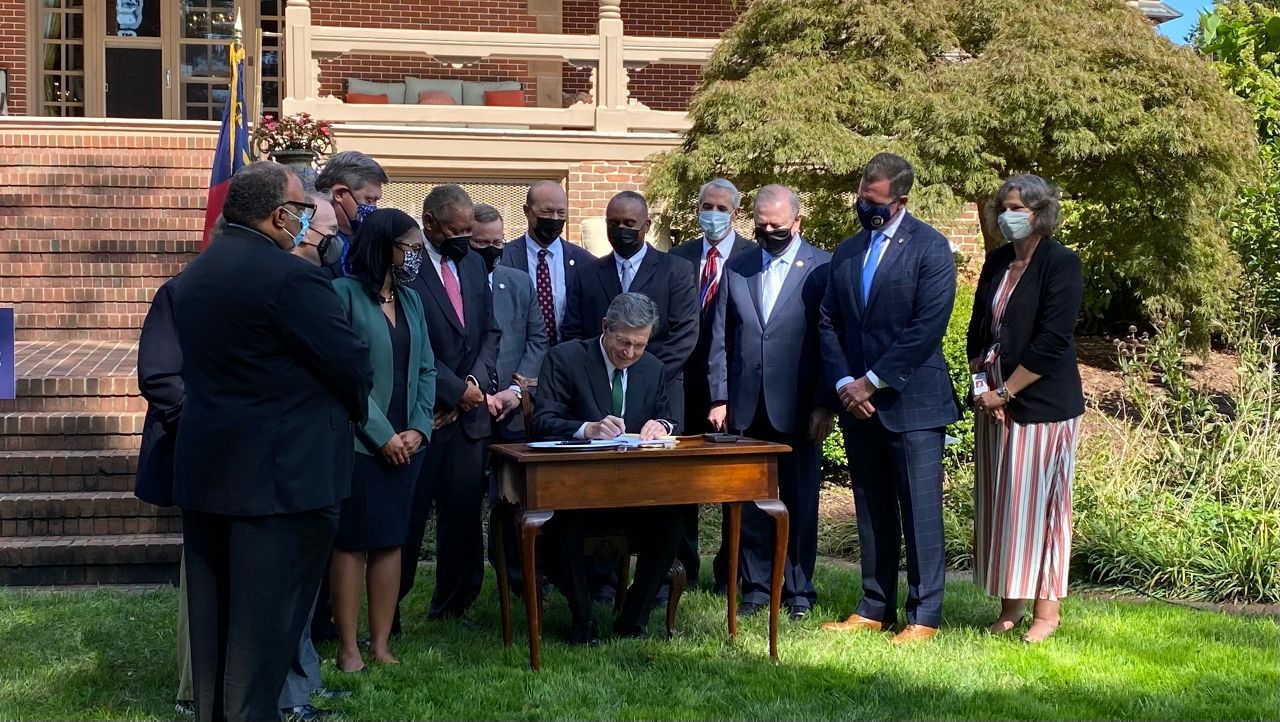By the end of this decade, North Carolina will cut carbon emissions by 70% — at least that's the mandate in the new clean energy bill signed into law by the governor Wednesday.
House Bill 951, titled Energy Solutions for North Carolina, gives the state Utilities Commission the ability to shutter dirty coal-fired power plants and to work with energy companies and others to get power producers to carbon neutrality by 2050, based on 2005 levels.
"Today, North Carolina moves strongly into a reliable and affordable clean energy future. This new bipartisan law requires the North Carolina Utilities Commission to take steps needed to get North Carolina a 70% reduction in carbon emission by the year 2030 and to carbon neutrality by 2050," the governor said at a signing ceremony Wednesday.
"For the first time ever, the Utilities Commission has the authority and the duty to cut carbon emissions," Cooper said.
The bill had been stalled out for months in the General Assembly, but a bipartisan deal on clean energy sent it sailing through committee and to the governor's desk in a matter of weeks.
Republican and Democratic leaders from both the North Carolina Senate and House joined Cooper for the ceremony on the south lawn of the Governor's Mansion at noon Wednesday.
The bill had been through 49 different versions since it was first introduced. But leaders from the General Assembly all celebrated how they could negotiate a bill that passed with strong bipartisan support.
"It's great to see a bipartisan, bicameral bill that can pass like this," Republican House Speaker Tim Moore said.
Dan Blue, leader of the Senate Democrats, said, "Democrats and Republicans understand we have to curb the effects of climate change."
The new law will retire some coal-fired power plans. The Utilities Commission will decide which Duke Energy power plants need to be shuttered.
The state will replace the power from those plants with new renewable energy sources. The law requires the commission to pick the lowest-cost options to keep people's power bills as low as possible.
Large-scale solar and other renewable energy sources will become key sources of power for North Carolina’s electric grid.
For solar, the law says utility companies will be required to buy 45% of their solar power from smaller solar producers. Utilities, like Duke Energy, could generate 55% of the solar power on their own.
Electric rates could go up for consumers under the new bill, according to the Associated Press.
The bill gives Duke Energy the ability to ask for rate increases in three-year blocks instead of having to ask for rate increases every year.
The Utilities Commission estimated that Duke Energy customers could see rates go up by 4.5% by the end of this decade under the House bill, according to the AP. An industrial customers group said the price increase could be several times what was estimated for the House bill, the AP reports.
